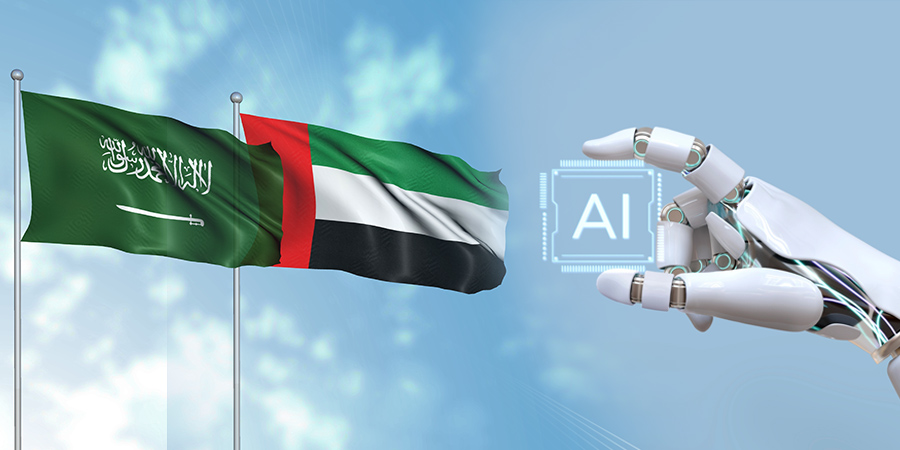According to a 2025 AI Sentiment Index Study, countries from the Middle East and Asia are the most comfortable when dealing with artificial intelligence (AI). India and China are at the top globally (88 out of 100) while the UAE and Saudi Arabia have the highest levels within the Arab region, with 87 and 86 scores respectively.
The AI Sentiment Index Study, a global survey of over 15,000 people, found that 82% of respondents had consciously used AI in the past six months.
Due to varying factors, such as demographics and psychographics, AI should not be considered a one-size-fits-all technology but rather a deeply personal, context-driven digital experience.
Do People Trust Those Managing AI?
Even though people are considering AI, they remain skeptic about those who will be managing their AI activities. Telecom companies have a net trust score of 20% when it comes to public confidence in how they handle AI interests, while technology companies lead with the highest score (26%). These numbers indicate a low threshold of trust and confidence in AI service providers or integrators. Based on the latest report, people have lower trust and confidence in media and entertainment companies as well as governments, both of which target public interests.
The amount of misinformation ongoing in social media and the lack of transparent and unified policies supporting AI impact the net trust of the people.
On a positive note, the Middle East and Asia also have higher concentrations of “tech champions” than in North American, European, and Oceania countries. Defined as countries who frequently use AI, see long-term benefits, and advocate for regulation, “tech champions” are excited to have AI in their lives and like the idea of using AI to help simplify and make choices.
Yet, while many people are enthusiastic about AI in their lives, concerns remain. There is still a substantial hesitation regarding AI accuracy, the use of personal data, and uncontrollable AI. In the Middle East, 68% of Saudi-based respondents are concerned that AI will generate false information, while 66% of UAE-based respondents worry that their data will be used to train AI without their consent.
Openness vs Adoption
Across various aspects of daily life and work, people are more open to using AI than they are actively engaging with it. This highlights a key opportunity to close the adoption gap.
In the technology, media, and telecommunications (TMT) sector alone, while 80% express positive sentiment toward AI, only 56% are currently using it.
Globally, 67% of the respondents have used AI for customer experience (CX), showing the most minimal gap (77% sentiment). Despite higher individual motivation for AI in the finance, energy, and government sectors, these three areas have the widest AI usage gaps, necessitating the need for more efforts and investment to convince people to start utilizing the technology.
Saudi and UAE: AI Leaders
Saudi Arabia has recently secured the top global ranking for empowering women in the field of AI, according to Stanford University’s AI Index Report 2025. This milestone highlights the Kingdom’s commitment to promoting gender equality and advancing its technology as part of its Saudi Vision 2030 strategy.
To strengthen the maturity and reliability of AI across industries, the Saudi Data and AI Authority (SDAIA) introduced an accreditation certificate for AI service providers earlier this year. This initiative marks a major step forward in the Kingdom’s AI governance, reinforcing its commitment to responsible and trustworthy AI deployment.
Analyzing Saudi Arabia’s AI Revolution: Why the World is Watching in 2025
On the other hand, the UAE’s technology sector is set for impressive growth in 2025, with revenues expected to rise by USD 3.8 billion, reflecting an annual growth rate of 6.24% from 2025 to 2029. Industry experts also predict that by 2031, private sector investment in AI will reach AED 335 billion, further driving the country's economic expansion.
His Excellency Omar Sultan Al Olama, Minister of State for Artificial Intelligence, Digital Economy, and Remote Work Applications, emphasized the UAE’s pivotal role in shaping global AI governance, noting the country's active involvement in international policy discussions and its efforts to define the standards and frameworks that will guide AI’s future.
Previous Research Found That UAE Consumers Rank High In Appetite For Artificial Intelligence










